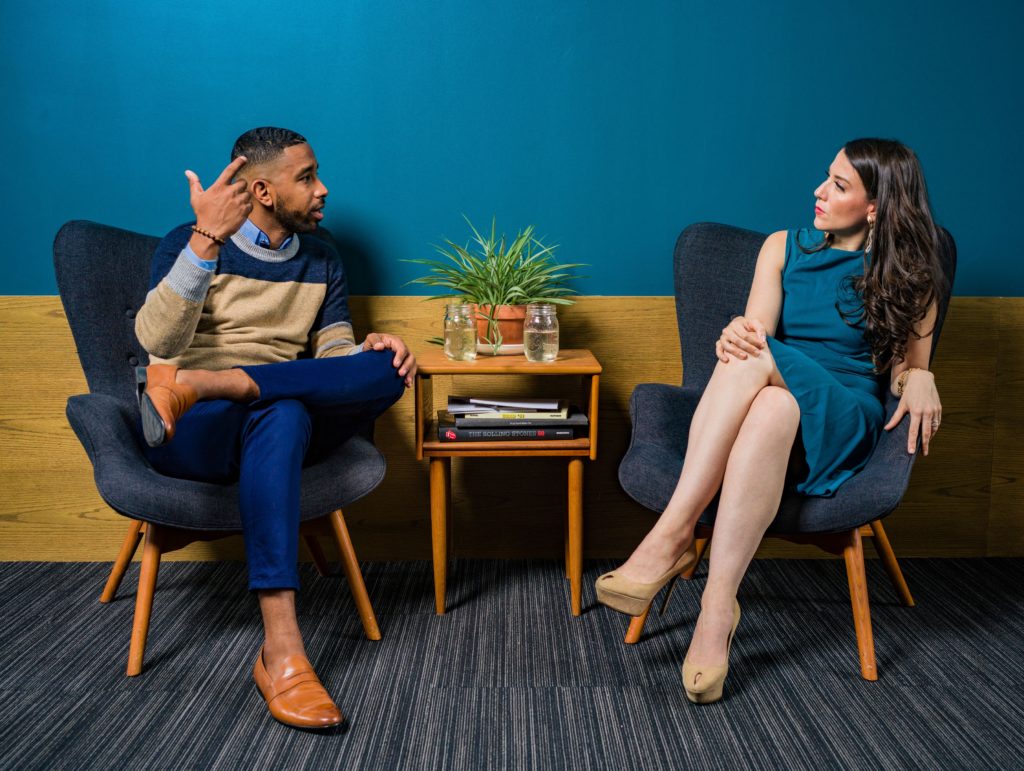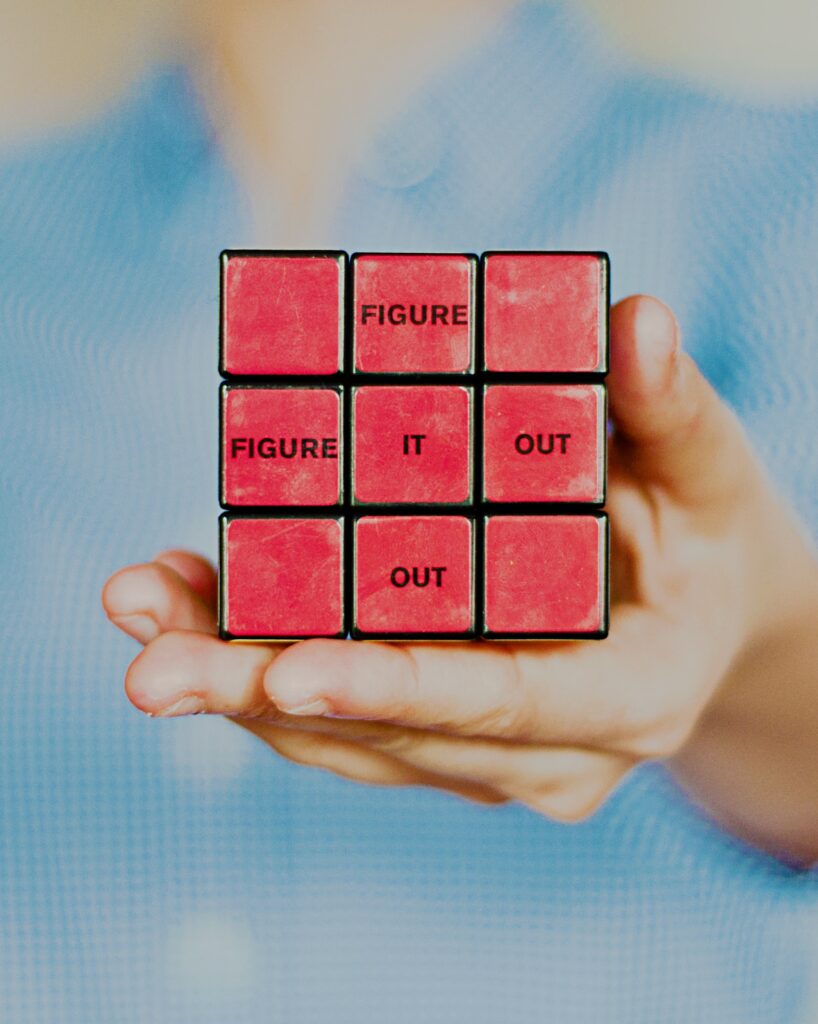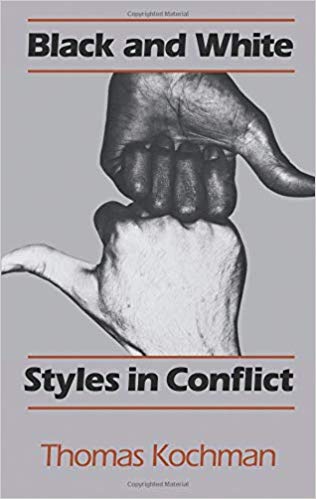Think about a time when you’ve gone to an interview. Before you go you might find yourself trying to put your best foot forward. You dress nicer, you may change up your word choice, and maybe even the way you enter a room. You try to put on an air of casual charm, use industry language, and generally may suppress parts of yourself to be seen in as good of a light as possible. There are literally thousands of articles online about how to take who you are and make it as job-friendly as possible. What you are really trying to do is seem as much like the culture around you as possible.
Take that idea and feeling and put it over 40-90% of your life. That’s code-switching. That’s what the majority of non-White Americans spend their time doing. Dear white people, most often when you see your brown friends, they are doing this. Why? For your comfort. Before you get offended or start feeling guilty, let’s really break it down and explore why you should learn to code-switch.

We all code-switch. It’s just some of us do it for more parts of our lives than others. Those of us who have to code-switch all the time often keep our real personalities to ourselves and people we know won’t judge us. Instead, to be deemed proper, we contort our personalities, style, and way of being in the world to fit the more mainstream, or white, way of being in the world. You learn how to do this at a young age, and at least in the Black community, it’s a talk that happens long before the sex talk.
Let’s start with language. The majority of white Americans speak a similar dialect. Although some small things such as pronunciation, or word choice may change, the grammar is often the same. You learn English and never really think about it again. For Black children and many other minorities, it’s different. The language I use for my daily life in Colorado is different than my language when I’m at dinner with Black friends. When I was a child, I switched schools a lot. I never thought about the way I talked until third grade. My Black friends teased me about going to a white school and I was in no way prepared for the shift.
Coming from an oral culture, suddenly I was immersed in a culture that gets much of its info from books. Reading out loud became a bigger deal and a more important skill. I wasn’t good at it. With this major change, suddenly I felt like the white students didn’t understand me in the same way the Black students did. Over time I learned the rules of white speech and grammar and lost touch with some of the shifting slang of Black English. By the time I was in high school, I would only speak formal White English and struggled to keep up with the slang I never used. At home, I spoke a more formal version of Black English and was often teased. It was only in college that I gained the ability to code-switch with more ease. Although I still write and speak a bit formally for both dialects.

Recently, I was at a primarily Black church and noticed that my language changed directly depending upon with whom I was speaking. I used a more informal Black dialect when speaking to the church, a slightly more formal version while speaking to a friend named Adam in Black company, and White English while speaking to students and white dancers.
It’s a common misconception though that code-switching only includes language. Earlier this year, Obsidian wrote on the hierarchy of Black culture. Guess what? That shifts too. A while back a friend asked if I and another older Black man would ever get past our formality. I laughed and said, “probably not”. We are friends but it would be disrespectful to not be a certain level of formality. No matter my age, he’ll always be my elder and that’s it. As a child white parents would introduce themselves by their first name. I often would end up calling them Honorific- first name (example Mr. John). As I got older, my Black friends switched their language to describe parents they thought were cool to Mama- last name (example Mama Jones). Never ever would we call anyone’s parents, particularly our own, by just their first name.
Other examples of code-switching, would be in white spaces when I curb my laughter- I often chuckle behind a hand. While in Black community, we laugh so loud it echoes through the building. I’m faster to make a joke, speak loudly, or interrupt people, in Black community, where these things aren’t considered rude. In white community, I tend to be much more careful about how I act in public.
So why am I saying white people should learn to do this?! Because the rest of us have to! Seriously though, it’s an act of good faith. As a minority in America, we have to change how we act and present to be safe and accepted in White society. If you have friends that don’t look like you, participate in activities that come out of Black culture, claim to be an ally, care about race relations in America, there are so many reasons you should learn this skill.
I can hear the White folk in my life asking, “Grey? How do I do this without falling into stereotypes and appropriation??”
Easy, my pale friend, with these rules you can code-switch without being rude:
- Be polite and respectful.
- Don’t project your values onto others.If you must, be confused amongst your own. Black people don’t get why white people do MANY things. But when in your culture I sure won’t voice it. #karen
- Be yourself. If you are shitty, pretend to be someone else.
Ex: if you don’t understand Black grammar don’t use it or you risk getting laughed at, or worse, offending someone. Many groups have a “White Julie” because she’s cool, wants to learn, and is herself.
- Use formality until you know when it’s ok not to. Better to be too formal than not formal enough.
- Sit down, be humble. A large part of learning to code-switch is listening. Whatever culture you are joining has been here before you and will probably be after you, be humble. (Be a guest, not a tourist.)
- Ask Questions. If you are unsure of how to do something or what it means, ask someone around you, that you already have a relationship with and to whom you are close in age.
- Remember people don’t have the same background as you. They may have not seen YOUR cult classics, have your religion or education, but they do have their own version of these things. Things you may know nothing about.
- Accept you won’t get all context. Look it up in your own time. If I don’t get “Everything I Hate About You” movie jokes, just as many of you don’t know Felicia was a crackhead as you say/said “bye Felicia” [seriously, watch “Friday’ and send me your questions].
I wish I could tell you the basic rules of communication cross-culturally. But honestly, I don’t know it all and it’s a thing one must learn in their own time. Code-switching in its essence is molding yourself to be the most presentable you can in another culture. By learning about the cultures that are hidden around you, you may find a richness in life and in your friendships that you would have never seen before.



I love that you’ve included ways in which white people should code switch. Seriously, if we want unity, code switching needs to apply both ways. Funnily enough, in my old workplace, I had a white colleague named Julie and she was exactly the embodiment of ‘white Julie.’ A true ally and she actually spoke up for Black women by going to a fellow white colleague, she said something inappropriate, and told her she can’t say that. 😂